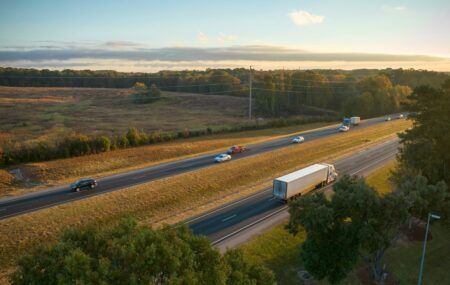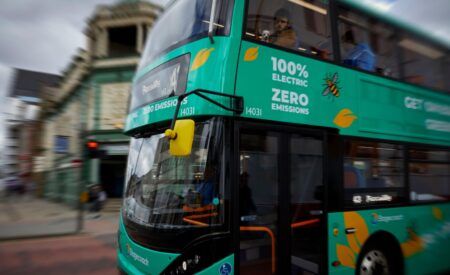To help combat the city’s toxic air crisis, London Mayor Sadiq Khan has announced proposals to start the Ultra Low Emission Zone (ULEZ) daily charge for the most-polluting vehicles in central parts of the UK capital from April 8, 2019, with plans to expand the charge across Greater London for buses, coaches and trucks in 2020, and up to the North and South Circular roads for cars and vans in 2021.
The mayor has already confirmed the £10 (US$12.40) T-Charge (‘Toxic Charge’), which will start in October this year. Khan is now proposing, following a public consultation, that this will be replaced by the introduction of the world’s first Ultra Low Emission Zone (ULEZ) in central London in April 2019, which will cover the same area as the existing congestion charging zone.
Khan is committed to taking ambitious action to protect citizens and visitors to London from the damaging health impacts of air pollution, and has more than doubled funding spent on tackling air quality to £875m (US$1.08bn) over the next five years. Petrol vehicles that do not meet the European Union’s (EU) Euro 4 standards and diesel vehicles that do not meet Euro 6 standards will have to pay a ULEZ daily fee of £12.50 (US$15.5) for cars, vans and motorbikes and £100 (US$124) for buses, coaches and trucks, to drive in the zone at any time.
It is expected that petrol cars that are approximately more than 13 years old in 2019, and diesel cars that are more than four years old in 2019, will not meet the new standards. The total cost, with the congestion charge added, for motorists with non-compliant cars will be £24 (US$29.7) a day. The ULEZ will apply to all vehicle types, except black taxis. It is estimated that introducing the zone in central London will result in nearly a 50% reduction in NOx emissions from road transport in 2020.
Once the mayor has finished the consultations on the current ULEZ proposals in June, he wants to start consulting on actions that go even further, which would include expanding the ULEZ across a larger area, to cover nearly all of Greater London. The expanded zone would apply to all heavy diesel vehicles and would be implemented in 2020. The extension to include the area within the North and South Circular roads would be implemented in 2021. The timescales would provide drivers with sufficient time to take the necessary steps to prepare for the new standards, and reflect the minimum time needed for Transport for London (TfL) to implement such technically complex schemes over a large area.
“The air in London is lethal, and I will not stand by and do nothing. I’m announcing bold proposals which are critically needed to safeguard Londoners from our air quality health crisis,” explained Khan. “This will mean the capital has the toughest emission standard of any world city. These measures will help improve the air that millions of Londoners breathe.”




